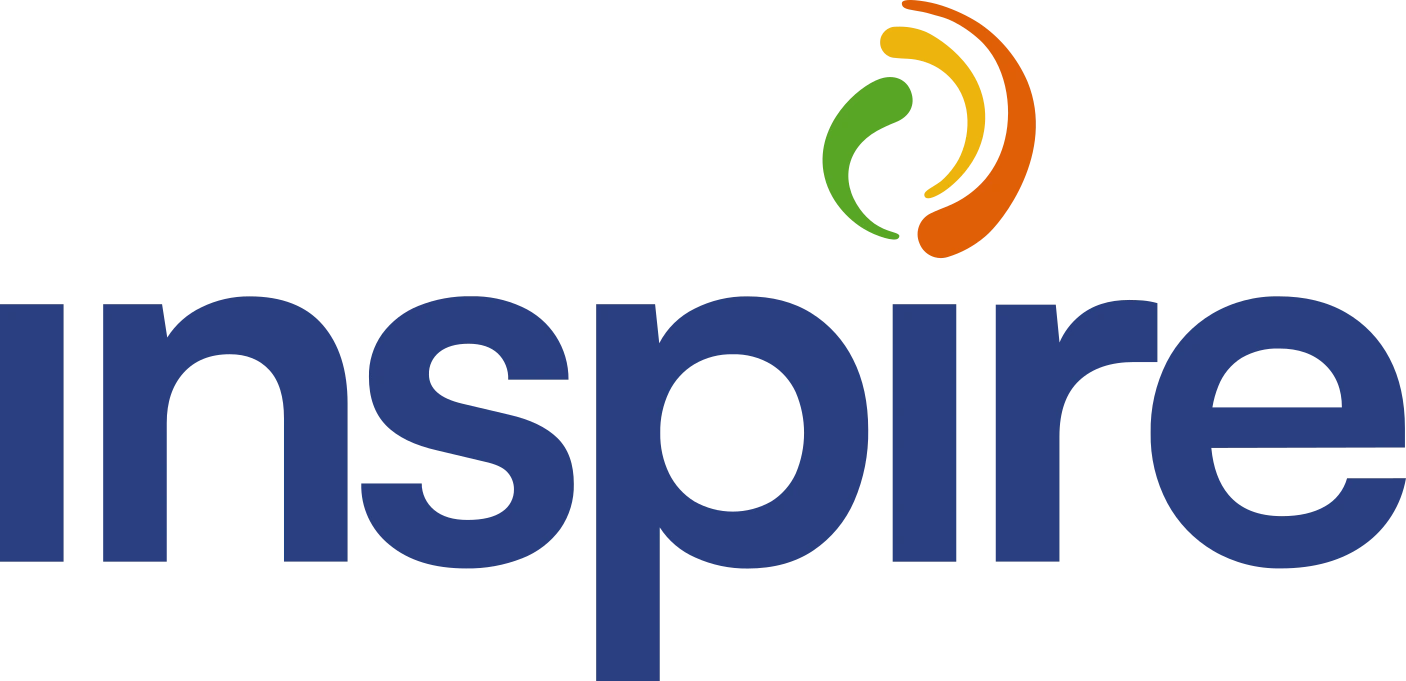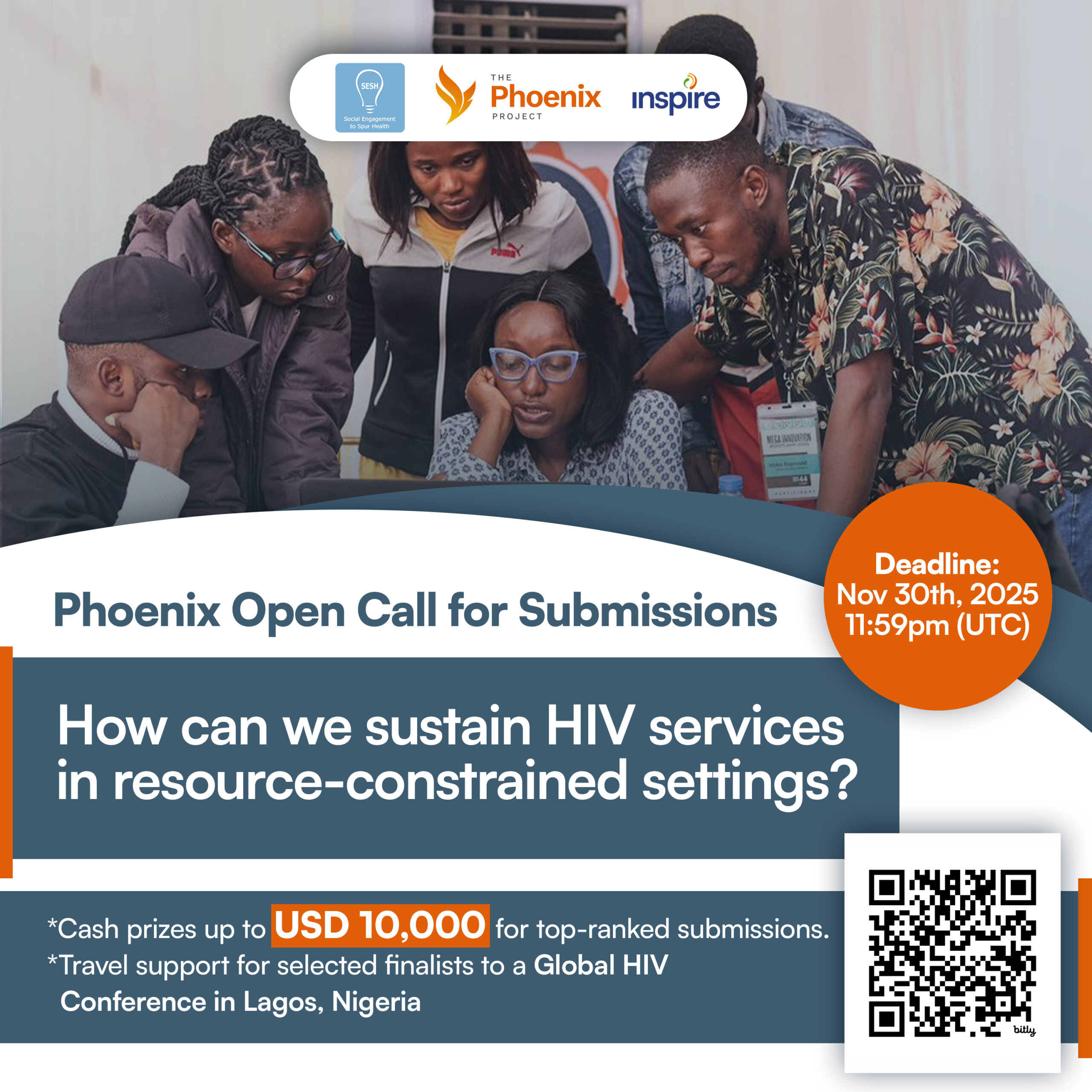Phoenix Open Call: Sustaining HIV Services in Resource-Constrained Settings
Open Call Details
How can we better sustain HIV services in resource-constrained settings?
Whether your idea has been implemented or is still a concept, your experience can inspire scalable, sustainable solutions.
Deadline for submissions: 30 November 2025, 11:59pm (UTC).
Please review the information below for an example and tips to help with your submission.
Brief Overview
Just as the mythical phoenix symbolizes rebirth and renewal, sustaining HIV services will require resilience, innovation, and strategic approaches, especially in resource-limited settings. The HIV service delivery landscape is rapidly changing due to policy shifts, funding fluctuations, and systemic challenges. These challenges highlight the urgent need for effective, scalable solutions that ensure continuity of HIV services.
We seek practical insights, strategies, and innovative ideas from individuals and organizations on how to sustain HIV services amidst these challenges. This open call invites contributions from diverse people involved in the planning, implementation, or evaluation of HIV programs in resource-constrained settings.
Whether you have designed policies, interventions, programs, innovative funding models, partnership frameworks, or community-led initiatives, your experience can provide valuable lessons to inform sustainable HIV service delivery across diverse contexts. We seek ideas that have been tested in the field and those that remain ideas. We also welcome historical examples that highlight lessons learned from past efforts, as well as forward-looking strategies relevant to sustaining HIV services in 2025 .
The Phoenix Open Call, organized by INSPIRE and SESH Global, aims to gather actionable solutions that support organizations in maintaining HIV services despite systemic and operational challenges. Selected ideas will be showcased at a Global HIV Conference in Lagos, Nigeria, to help shape policy, practice, and funding strategies for sustainability.
We are looking for contributions that answer the following challenge question:
How can we best sustain HIV services in resource-constrained settings?
We are accepting submissions anytime until November 30th, 2025, 11:59pm UTC.
Submissions could cover any idea/plan to sustain HIV services. This includes (but is not limited to) submissions related to pivoting services, gracefully stopping services, transitioning services, and identifying alternative funding sources.
Guidelines for Contributions
Eligibility
- Open to individuals, community organizations, NGOs, universities, health institutions, policymakers, or researchers working in resource-limited settings. Submissions are welcome from individuals at all experience levels, from early career professionals to seasoned experts.
- Anyone with an idea or insight on sustaining HIV services in resource-constrained settings is eligible to submit. By sustainability, we mean the long-term maintenance and continued use of effective HIV prevention and control infrastructure.
- Entries may be submitted individually or in teams of up to four (4) members.
Language for the entries
Submissions can be made in any of the official UN languages – English, Spanish, French, Chinese, Russian, or Arabic. Please specify your language preference.
How to Submit
You can make your submissions through this online form
Submission Format
Structure your entry to include (no more than 500 words):
The provided template is intended only as a guide — you may adjust the format as needed to best present your idea.
- Background/context: Briefly describe the setting and key challenges related to sustaining HIV services, particularly in resource-limited environments. Highlight specific barriers such as limited funding, access gaps, policy constraints, stigma or other barriers.
- Description of the solution/strategy: Clearly outline the intervention, approach, or proposed concept designed to address these challenges. Specify the target population, main activities, and how the solution was delivered or will be delivered.
- Principles and approaches used: Summarize the guiding principles (e.g., community-led, equity-focused, cost-effective) and key methods or tools applied. Indicate if collaboration, co-creation, or local engagement played a role.
- Lessons learned / Anticipated outcomes: For implemented ideas, highlight key results, insights, and evidence of effectiveness where available.
For untested or conceptual ideas, outline the expected outcomes, underlying rationale, and potential ways to assess impact in the future. - Scalability and potential for adaptation: Describe the potential for the solution to be scaled or adapted to other settings, disease areas or population. Identify the core elements that make it transferable and any prerequisites for successful replication.
Judging Criteria
Submissions will be scored on a 1–10 scale based on:
- Relevance to the challenge: Assesses how well the submission aligns with the core objective of the Phoenix Open Call: identifying solutions to sustain HIV services in resource-constrained settings.
- Clarity and conciseness: Evaluates the clarity, organization, and coherence of the submission. Effective communication of the context, strategy, and outcomes helps others understand, learn from, and possibly replicate the solution.
- Innovation and practicality: Assesses the creativity of the approach and its grounding in real-world application. Priority is given to ideas that introduce new ways of thinking or adapt proven methods in resource-constrained environments.
- Feasibility and scalability: Evaluates how realistic the solution is within its specific context and whether it can be scaled or adapted to other countries, regions or populations. Submissions should demonstrate implementation potential beyond the original setting.
- Equity and community engagement: Assesses how the approach ensures equitable access to HIV services, especially for marginalized or underserved populations. Submissions should reflect meaningful community involvement in the design, implementation, or evaluation process.
(Note: We value experiences rooted in practice, lessons learned, and evidence-based approaches. Submissions that incorporate innovative or tested solutions are encouraged.)
Timeline
- Deadline: November 30, 2025, 11:59pm UTC
- Judging period: December 2025
- Finalists announced: before January 31st, 2026
Prizes & Opportunities
- All eligible participants will receive a certificate of participation.
- The top half of submissions will receive a digital spotlight on our social media platforms.
- Top-ranked submissions will receive cash prizes of up to USD 10,000.
- Selected finalists will be invited to a workshop organized by INSPIRE at a Global HIV Conference in Lagos, Nigeria, with airfare, accommodation, and visa costs covered.
Steering Committee
Anita Makori, Chisom Obiezu-Umeh, Dawit Alemu, Folahanmi Tomiwa Akinsola, Franklin Yates, Griffins Manguro, Joseph D. Tucker, Juliet Iwelunmor, Mike Reid, Nandi Luthuli, Suzanne Day, Ucheoma C. Nwaozuru, Weiming Tang
Organizing Committee
Abdulhammed Babatunde, Angel Obiorah, Emily Hickner, Jing Tang, Kelechi Chima, Mdoo Tormough, Progress Obaloluwa Agboola, Yusuf Babatunde
Partner Organizations
INSPIRE, SESH, LIGHT, AVAC, 4Youth By Youth, NIMR, PATC3H-IN
FAQs
What is an open call?
Open calls provide a structured mechanism to solicit diverse feedback over a period. Open calls have been widely used by governments, private foundations, and others to spur innovation. More details about open calls for health are available here.
Can I submit to the open call as an individual or a group?
Yes! There are no restrictions on the size of the group. However, one person must be named as the representative of each group.
Is there a limit to the number of contributions?
No, there is no limit. However, in the interest of fairness to all other participants, only one of your submissions may be selected to qualify as a finalist; therefore, please consider quality over quantity when submitting. Additionally, each contribution must be submitted separately.
Does it cost me anything to participate?
Participation in the open call is free and there are no costs to submit an entry.
What are the prizes?
All eligible participants will receive a certificate of participation. The top half of submissions will receive a digital spotlight on our platform. Top-ranked submissions will receive cash prizes of up to USD 10,000. Selected finalists will be invited to a Global HIV Conference in Lagos, Nigeria, with airfare, accommodation, and visa costs covered.
Are there any other conditions that apply for eligibility?
Your submission must be an original work. Participants in the open call must not knowingly infringe, misappropriate, or otherwise violate any intellectual property rights, privacy rights, or any other rights of any person or entity in the performance of work.
What kinds of strategies are of interest in sustaining HIV services?
We are interested in evidence-based, cost-effective, and equity-focused strategies that sustain HIV services in resource-limited settings. Examples include community-led partnerships, innovative financing, integration into national systems, decentralized and task-shifted delivery, and data-driven quality improvement. Submissions may present tested interventions or conceptual ideas that strengthen resilience and long-term impact.
What are the considerations for using AI to generate ideas?
You may use AI tools to refine your submission, but it must reflect original human insight and contextual relevance. Entries generated primarily by AI will be disqualified. Ensure your content is accurate, ethical, plagiarism-free, and protects sensitive data.
Inquiries
Contact Organizing Committee via Progress_Agboola@med.unc.edu

